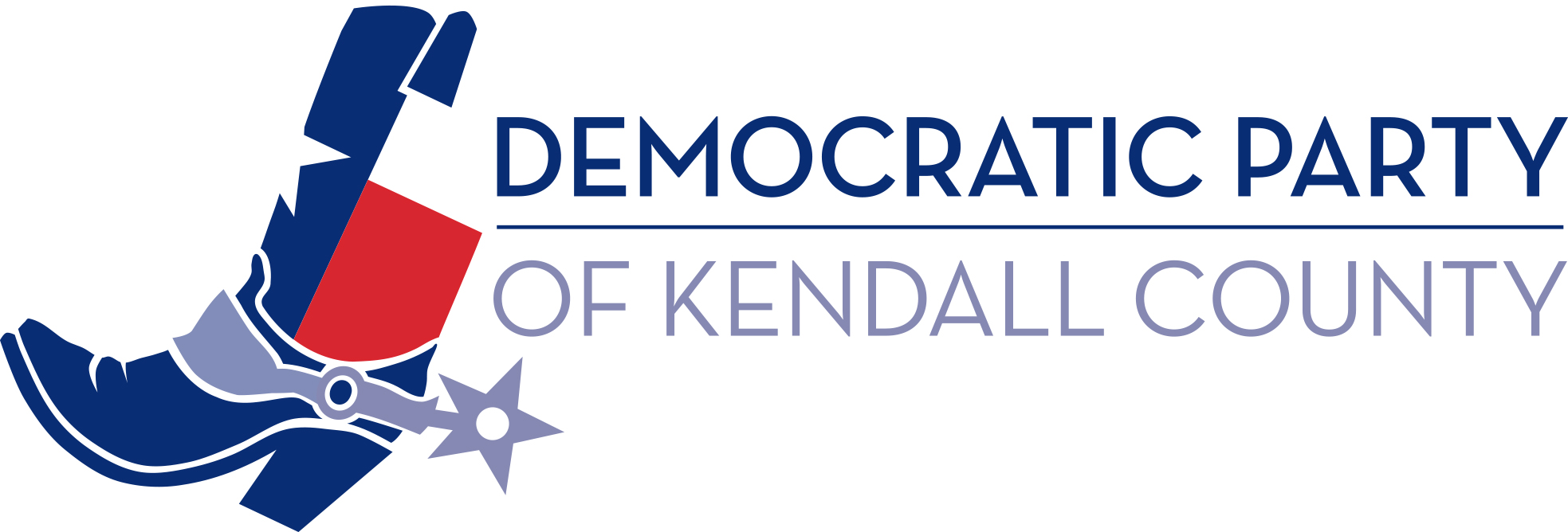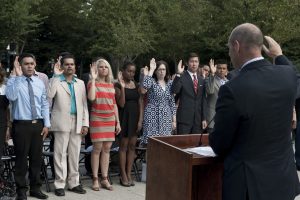By Susan Dollar
For the “Progressive Views” column, Boerne Star, January 21, 2024
[editor’s note: an abbreviated version of this column appeared in the January 21, 2024 issue of the Boerne Star.]

On December 24, 2023, the Viewpoints column by Rich Sena in the Boerne Star stressed that all lives matter. I found myself agreeing with much of what Rich wrote but his article also gave me pause. I thought about Philippians 2:3-4: Do nothing out of selfish ambition or vain conceit. Rather, in humility value others above yourselves, not looking to your own interests but each of you to the interests of the others. If all lives matter, then…
What about the lives of the 4,270,462 people that live below the poverty line in Texas?
Texas ranks 13th for the poorest state in the nation, placing it in the top 20 of the poorest states. In 2022, the poverty threshold for a family of four was $29,950. 76 of Texas’ 254 counties experienced an uptick in poverty rates from 2018 to 2022.
The state has significantly curtailed the amount of traditional welfare it provides to poor Texans over the last two decades, instead putting more of its federal anti-poverty dollars toward plugging budget holes or funding other programs that provide services to residents with higher incomes than those who qualify for cash welfare.
Proverbs 19:17 – Whoever is generous to the poor lends to the Lord, and he will repay him for his deed.
What about the lives of the 3,965,429 people who live with food insecurity in Texas?
One in every 8 people in Texas experiences hunger – that’s 1.4 million households. Texas is one of 9 states with higher food insecurity than the national average. 20%, or 1 in 5, Texas children experience hunger, and kids who don’t get enough to eat face serious disadvantages, including higher risks of multiple health complications and problems in school.
As of March 2023, Texans on the Supplemental Nutrition Assistance Program (SNAP) saw a minimum reduction of $95 in their monthly benefit, with some households experiencing a much higher reduction. Texas Health and Human Services estimates that Texans will experience a $340 million decrease in benefits from February to March. This is a significant loss of food assistance for the Texans who participate in SNAP. The loss is coming on top of a sharp increase in the cost of food and utilities, which has already led to an increase in people seeking emergency food from food banks.
Isaiah 58:10-12 – Feed the hungry, and help those in trouble. Then your light will shine out from the darkness, and the darkness around you will be as bright as noon.
What about the lives of the 5,185,561 Texans that have no health insurance?
Texas is still the state with the highest percentage of uninsured residents, at nearly 17%, according to the U.S. Census Bureau. Texans between the ages of 19 and 34 were most likely to not have health care coverage and over a quarter of Hispanic Texans were uninsured. The percentage of uninsured Hispanic Texans was more than twice the rate of uninsured Whites (11.1%) and Asians (8.7%).
Texas refuses to expand Medicaid and is leaving $11.9 billion in federal money (plus additional American Rescue Plan funding) on the table. Currently, 5,526,633 people are covered by Medicaid and an additional 1,849,000 Texans would be covered if the state accepted expansion. As of September, 917,573 Texans have been disenrolled from Medicaid. While some individuals have become ineligible because their incomes increased or they were children who aged out of the program, a majority — more than 600,000 — have been disenrolled in Texas because of procedural errors.
Matthew 25:36-40 – I was hungry, and you gave me something to eat. I was thirsty, and you gave me something to drink. I was a stranger, and you took me into your home. I needed clothes, and you gave me something to wear. I was sick, and you took care of me. I was in prison, and you visited me.
What about the lives of abused children in Texas?
There were 65,116 child victims of abuse or neglect in Texas in 2020. In FY 2022, 182 children died due to abuse and neglect in Texas. The past three years have had a marked increase in child fatalities involving older children. In FY 2022, children 3 years of age and younger made up 61 percent of confirmed child abuse and neglect fatalities. During FY 2022, Hispanic children accounted for the largest percentage of children who died from abuse or neglect. The per capita rate for African-American children who die from maltreatment continues to be higher than any other ethnicity in Texas. 68 percent of children who died from abuse or neglect in FY 2022 were too young for school and not enrolled in day care. Three children were being cared for by illegal day care operations. In all confirmed cases of abuse and neglect, parents continue to be the most common perpetrators.
Psalm 127:3 – “Children are a gift from the Lord; they are a reward from him.”
Mark 9:36-37 – And he took a child and put him in the midst of them, and taking him in his arms, he said to them, “Whoever receives one such child in my name receives me, and whoever receives me, receives not me but him who sent me.”
What about the lives of undocumented immigrants in Texas?
Texas has the second-highest undocumented population in the U.S. behind California. The population of unauthorized immigrants in the state has remained relatively stable at 1.6 million people (this does not reflect changes in migrant apprehensions and expulsions along the U.S.-Mexico border).
These unauthorized immigrants make up 8% of Texas’ workforce. With such a large share of Texas’ workforce, undocumented workers are critical to the labor infrastructure of the state. Undocumented immigrants are particularly concentrated in agricultural occupations (33% of the total agricultural workforce), construction jobs (27%), and among building grounds and maintenance workers (24%). They are also highly integrated into Texas’ communities and society, with nearly half (49%) being homeowners and more than three-quarters (78%) having lived in the U.S. since 2010 or earlier. Through their wages, they contribute more than $30 billion to the economy annually, with an additional $6.5 billion in combined federal, state, and local taxes.
Hebrews 13:1-8 – Let brotherly love continue. Be not forgetful to entertain strangers: for thereby some have entertained angels unawares. Remember them that are in bonds, as bound with them; and them which suffer adversity, as being yourselves also in the body.
If you believe that all the lives of all humanity matter, then what about these lives? Is this how we want our fellow Texans to live? Is this the Texas we want to live in?
As Texans, we need to remember Luke 6:30-31 – Give to everyone who asks you, and if anyone takes what belongs to you, do not demand it back. Do to others as you would have them do to you.
I’ll have more to say on this topic in the February 4 column.
Susan Dollar is the President of the Boerne Area Democrats.



